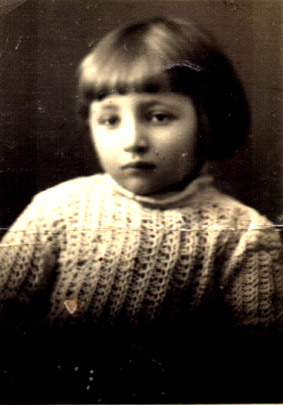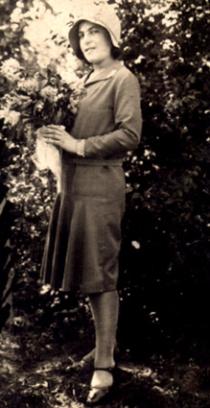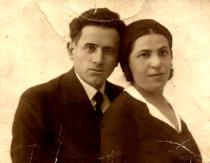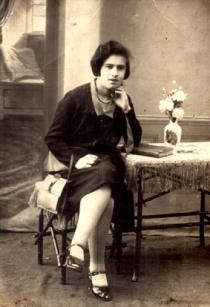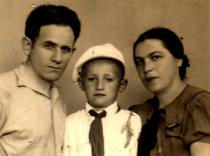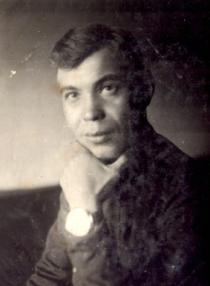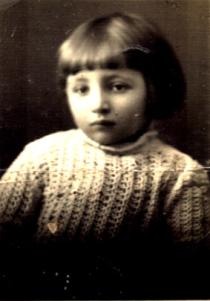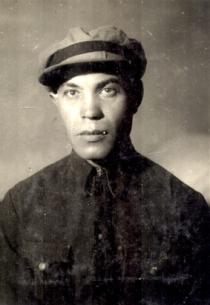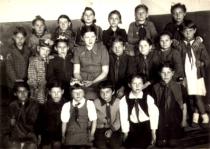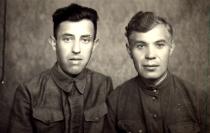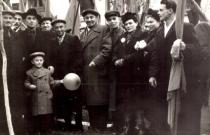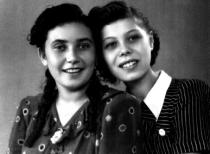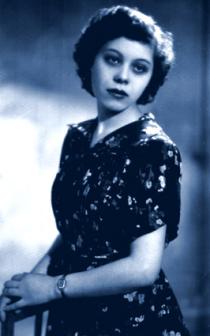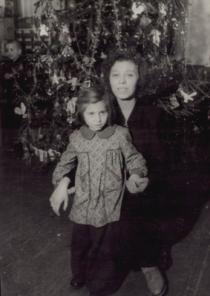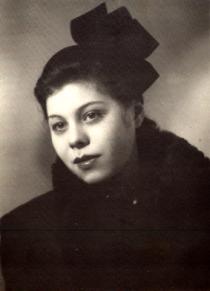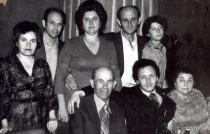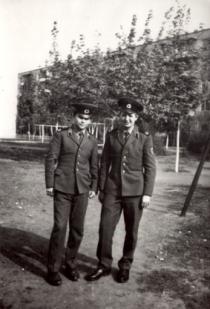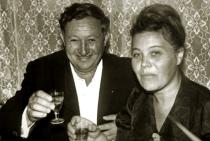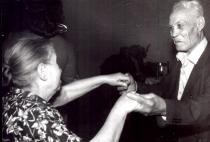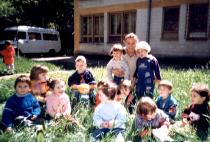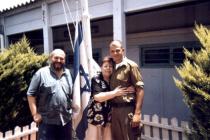This is me, Molka Mirskaya. The picture was taken in 1940 in Kishinev.
I was born on 19th January 1933, in the Jewish hospital, which was free for poor Jews. I was called Molka, but I don’t know whom I was named after. We lived in a small three-room apartment, rented from a Romanian, Domna. The house was one-storied, with a long veranda, with two apartments – the landlord’s and ours – facing each other. During the first months after the wedding our family lived modestly, not to say poorly. There was a cutting table and my mother’s sewing-machine, our bread-winner, in the first room. The second room was my parent’s bedroom. My grandmother and I stayed in the third room.
I had a wonderful childhood. My mother and grandmother loved me very much, and my dad just adored me. Every morning he used to kiss me while I was asleep and said that we would go for a walk in the evening if I ate well and behaved. I was looking forward to the evening. My father came back home, had lunch, and the three of us, dressed up – my dad in a suit, my mother in a frock, and I with the ribbons in my braids – used to go to an ice-cream café, owned by a Greek. There were tented tables in this Greek café. There were no less than 30 kinds of ice-cream, and my father bought me a new one each time. Then we walked along the thoroughfare and went to the park.
My grandmother was my greatest friend and confidante. She was always neat, in a snow-white kerchief. She used to have her hands full about the house – dusting, cleaning, washing and ironing and at the same time she was teaching me, perceiving my childish curiosity and worries. She scrubbed the apartment before Sabbath, even washed the walls. There were starched napkins on the table and on the chairs, old and darned, but clean. Grandmother lit candles, and there was freshly baked challah and wine on the table. My father was present, too. In spite of him not being religious, he respected Jewish traditions, and he let Mother and Grandmother observe them. On Saturday he usually went out, either to see relatives or acquaintances. Jewish holidays were always celebrated in our family.
In 1939 mother gave birth to a son. My brother was named Shepshel after my Aunt Rosa’s husband. In June 1940 I joined a professional girls’ school, Tarbut. I was trained for a certain time, along with getting compulsory education. But I wasn’t able to study there. On June 28th 1940 the Soviet Army entered Bessarabia and the Soviet regime was established. In September 1940 I was supposed to go to a Russian school. But I caught measles, missed the beginning of the school year, and my mother decided that I should go to school the next year. My happy and carefree childhood lasted for another year: Father still went for a walk with us in the evenings – my parents paid a lot of attention to me, teaching me to read and count. I knew the Russian and Yiddish alphabet.
